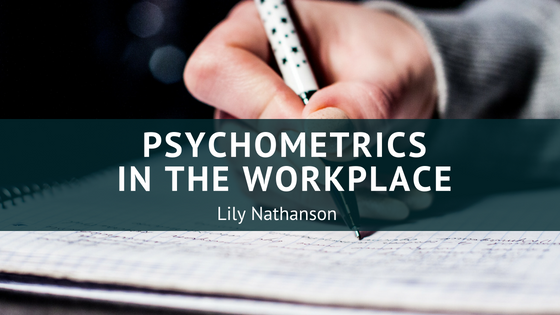Increasingly, organizations are utilizing psychometrics in the workplace to aid in the hiring process, analyze team members’ strengths and weaknesses, and ultimately enhance teamwork.
Most of us have taken a personality test or career assessment at one point in our lives, but now these tests are being used to match your personality with a team or even a job. Hiring employees with the right personalities can contribute to increased engagement and productivity. While increased engagement and productivity is something every business strives for, personality tests at work can also have their downsides.
Psychometrics in the workplace can be utilized in a variety of different ways. Commonly, HR departments will use personality tests during an interview or onboarding process. While work history and a strong skill set are both important, individual traits and the values a person has is also an important consideration. If you look at most team structures, every member tends to play a different role. Discovering potential strengths and weaknesses of incoming employees is a great asset to be aware of when pairing them with a team and, in some cases, a specific role. It can be hard to get a good read on someone during a one time encounter, so personality tests during the hiring process can be a good indicator if a person will be successful in your company. One commonly used personality test for analyzing potential employees’ personality traits is the Myers-Briggs assessment. This test examines the users’ tendencies to be either introverted or extroverted, in addition to studying preferences between thinking or feeling; sensing or intuition; and perception or judgment. Even though the test will not guarantee success on the job, it is helpful when considering whether a new hire will fit in with the company culture.
Another well-known personality test used in workplaces is a DISC assessment. A DISC test can be incredibly beneficial for improving interpersonal communication. Not only will you learn what your strengths and weaknesses are in your communication, but you’ll also gain valuable insight into how your coworkers like to be communicated with. Upon completion of the test, you’ll be placed into one of four categories (often with some overlapping) which are Dominance, Influence, Support, and Control. Delegating tasks according to your teammate’s strengths in these categories can increase your team’s productivity and efficiency in completing projects. This can also be a great sales tool for employees who work directly with customers, as it can help adjust the way you interact to match a client’s demeanor.
While personality tests can offer great insight, it’s important to recognize that they are not always 100% accurate. Results will vary depending on how truthful users answer, and can often differ if taken a second time. Dina Hamper, contributing author for Forbes magazine notes in this article that in some cases, personality tests can often lower employees trust in an organization. Aside from that, it can also cause leaders of the company to perceive a person based solely off of their scores.
Psychometrics can positively impact a workplace’s hiring process and overall retention. That being said, it’s not always a perfect solution, and it may not always be right for your business.

